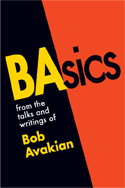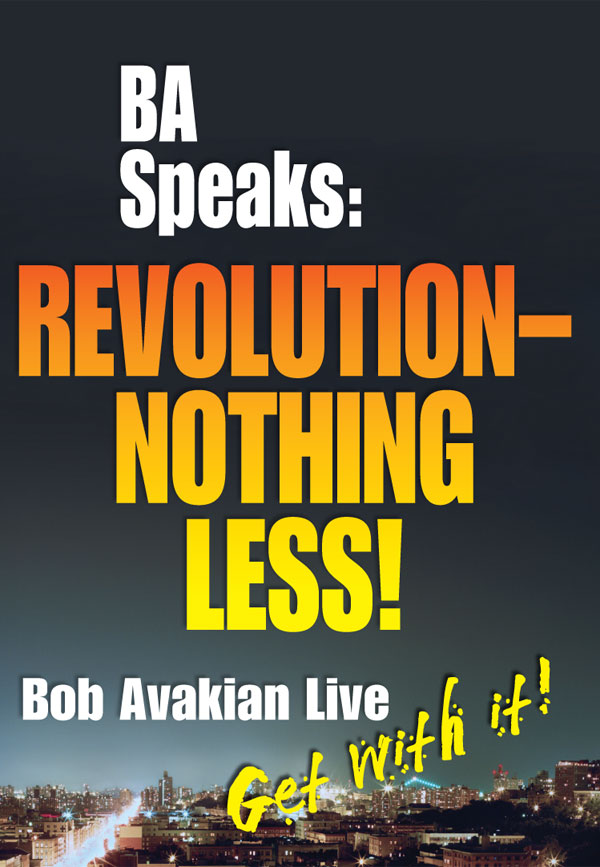Case #75: Obama, Clinton and the 2009 Military Coup in Honduras
October 24, 2016 | Revolution Newspaper | revcom.us
Bob Avakian recently wrote that one of three things that has “to happen in order for there to be real and lasting change for the better: People have to fully confront the actual history of this country and its role in the world up to today, and the terrible consequences of this.” (See “3 Things that have to happen in order for there to be real and lasting change for the better.”)
In that light, and in that spirit, “American Crime” is a regular feature of revcom.us. Each installment will focus on one of the 100 worst crimes committed by the U.S. rulers—out of countless bloody crimes they have carried out against people around the world, from the founding of the U.S. to the present day.
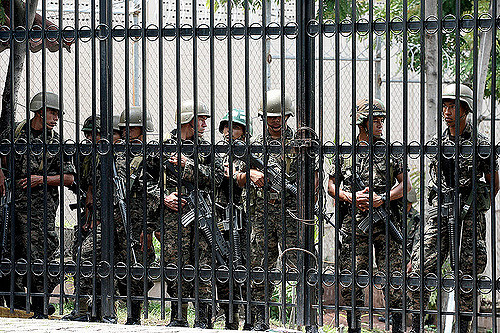 Honduran troops inside the presidential palace during the arrest of the president during the 2009 coup. (Photo: rbreve/flickr)
Honduran troops inside the presidential palace during the arrest of the president during the 2009 coup. (Photo: rbreve/flickr)
THE CRIME: On June 28, 2009, the Honduran military carried out a coup d’etat against the elected president, Manuel Zelaya, a liberal-leaning populist. The coup had crucial backing from then-Secretary of State Hillary Clinton and the U.S. State Department. The generals and politicians behind the coup brought to power a more openly fascistic and pro-U.S. regime that plunged the Honduran people even more deeply into the hell of U.S. domination, state-sponsored political assassinations and terrorism, and intensified violence, poverty, and oppression. These horrors remain in effect to this day, with U.S. backing.
The coup began with the abduction and kidnapping of President Zelaya, and was led by General Romeo Vásquez Velásquez. General Velásquez and three other generals who played key roles in the coup were graduates of the U.S. School of the Americas (SOA).1 Later that day, the Honduran congress elected its speaker, Roberto Micheletti, a member of Zelaya’s own Liberal Party, to head an interim post-coup regime.
The coup was immediately denounced as illegal and illegitimate by other Latin American countries. President Obama and Hillary Clinton each released routine criticisms of what they called “the action.” Neither of them called it a coup, and neither called for Zelaya to be returned to power.
In reality, Obama, Clinton, and the State Department knew days ahead of time that a coup was in the works. And they knew it was not a legal act “in defense of the constitution,” as the junta leaders and opposing politicians would claim. Less than a month after the coup, the U.S. ambassador to Honduras sent a secret cable (later released by WikiLeaks) to Hillary Clinton. It was titled “Open and Shut: The Case of the Honduran Coup,” and stated, “There is no doubt” that Zelaya’s removal “constituted an illegal and unconstitutional coup.”
Within days of the coup, Secretary Clinton stepped in with a strategy to make sure the coup succeeded and could claim legitimacy: elections would be held without Zelaya being allowed to take part.
This post-coup election was held five months later under military rule, marked by violence and censorship. Although it was boycotted by opposition candidates and by international observers, including the Carter Center and the UN, the Obama administration upheld the election and recognized the outcome even before the polls had closed. Since then, the U.S. military and State Department have worked closely with the post-coup regimes of President Porfirio Lobo, and now with President Juan Orlando Hernández.
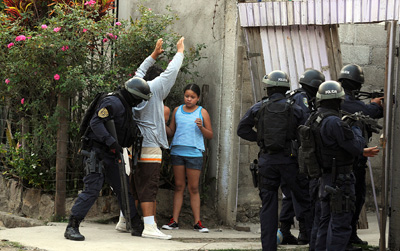
Honduran police frisk a man as they break into a home in Tegucigalpa, Honduras, June 2013. (AP photo)
Meanwhile, the lives of the Honduran people have become even more desperate and dangerous. The murder rate in Honduras, already the highest in the world, increased 50 percent between 2008 and 2011. State security forces carried out violence and murder with impunity. Released documents show that high-level police commanders planned, and police carried out, the assassination of the chief of the anti-narcotics unit shortly after the 2009 military coup. Two years later, they then killed his adviser. In October 2011, the 22-year-old son of the rector of the National Autonomous University of Honduras was kidnapped and murdered by Honduran national police. The rector, Julieta Castellanos, had been a vocal fighter for police reform, and had called for an end to U.S. aid for the Honduran police and military.
The School of the Americas Watch (SOAW) wrote in 2012 that “state security forces have killed over 300 people, with 34 opposition members disappeared or murdered... at least 22 Honduran journalists have been killed.” The SOAW also wrote that death squads have reemerged since the coup and are responsible for many of these killings.2
“Washington backs them every step of the way as they silence the population into fearful compliance with government initiatives,” SOAW concluded. The Honduran security forces are now seen by the people as the principal source of the country’s violence.
There is now widespread suspicion that the state was involved in the March 2016 murder of Berta Cáceres, the internationally admired environmentalist and a well-known leader of the opposition. The Guardian has revealed that, according to one soldier, “her name appeared on a hit list distributed to US-trained Special Forces units of the Honduran military months before her death.” Cáceres had openly condemned the Hernández regime, and called out Hillary Clinton publicly for her responsibility for the carnage taking place in Honduras today.
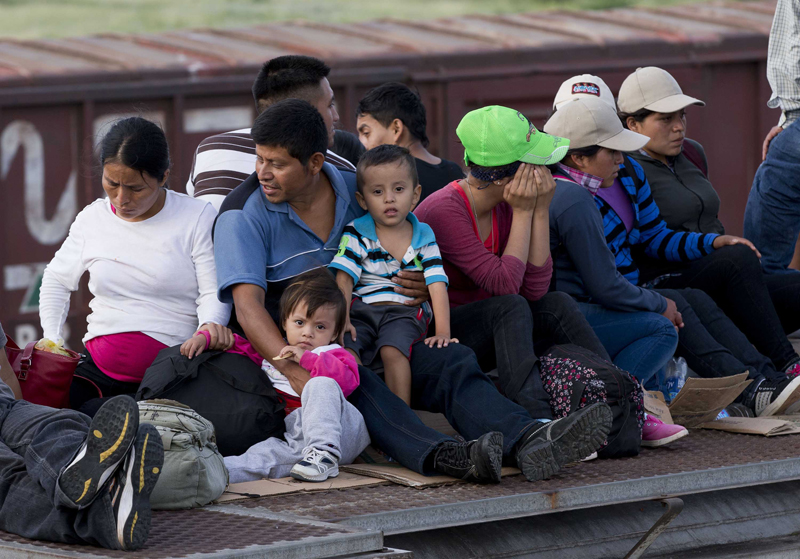
Central American families, including young children, riding on top of a freight train through Mexico on the way to the U.S. border, July 2014. (AP photo)
The people of Honduras face escalating state violence, gang violence, and even more desperate economic conditions. Two out of every three Hondurans live below the poverty line, and unemployment is estimated at nearly 30 percent. These conditions have led to the tidal wave of refugees arriving at the U.S. border from Honduras as well as from other Central American countries. Most have been mothers with children, and unaccompanied minors.
THE CRIMINALS:
Hillary Clinton: In the hard-copy version of her memoir, Hard Choices, Hillary Clinton admits that she was instrumental in enabling the coup to succeed. She brags about talking to her “counterparts” in Mexico and elsewhere in the region. They “strategized on a plan to restore order in Honduras and ensure that free and fair elections could be held quickly and legitimately, which would render the question of Zelaya moot.” (emphasis added) After these revelations generated international outrage, this portion of Hard Choices was removed from the paperback edition.
In her memoir, Clinton mocks Zelaya as “a throwback to the caricature of a Central American strongman, with his white cowboy hat, dark black mustache, and fondness for Hugo Chávez and Fidel Castro.”(emphasis added) She describes pulling him into a small room during an annual Organization of American States (OAS) meeting right before the coup. The conflict over U.S. opposition to Cuba’s re-entry into the OAS was coming to a head and Clinton warned Zelaya that he could back a U.S. “compromise” and save the OAS, or else be remembered for overseeing its collapse. Zelaya soon came around to the U.S. position.
In a recent, April 2016, interview with the New York Daily News editorial board, Clinton admitted that one reason she and Obama refused to call the 2009 coup a “military coup” was that it would have forced them to cut off aid to Honduras, including tens of millions of dollars for the Honduran military and government. Professor Dana Frank, an expert on human rights and U.S. policy in Honduras, summed up that Clinton wanted to “act like the coup didn’t happen... and defend her actions in installing this terrifically horrific, scary post-coup regime.”
Bob Avakian, "Why do people come here from all over the world?"
President Obama: While initially stating the 2009 coup was not legal and Zelaya remained Honduras’ president, his administration, the State Department and Secretary of State Clinton, were developing plans to prevent Zelaya’s return and provide the cover and backing for the junta to be consolidated. Meanwhile, the State Department was in touch with the U.S. SouthCom commander "to ensure a coordinated U.S. approach" to the coup, as one secret cable stated.
General Romeo Vásquez Velásquez, and presidents Porfirio Lobo and Juan Orlando Hernández: These three played crucial roles in authorizing and carrying out the 2009 coup, and in ruling over the Honduran people down to today. The State Department in 2010 described the current president—Juan Orlando Hernández—as someone who “has consistently supported U.S. interests.” Hernández was an enthusiastic supporter of the coup when he was in the Congress and worked to further consolidate it. For example, in 2012 as president of the Congress, he carried out a “technical coup” by deposing four members of the Supreme Court and naming new ones loyal to him the next day. He then illegally named a new attorney general.
THE ALIBI: The coup plotters, and Hillary Clinton as Secretary of State, justified the coup by claiming that Zelaya was the one who had acted illegally by violating the constitution in calling for a non-binding poll, aimed at initiating constitution reforms, be put on the ballot in the November 2009 election. .
THE ACTUAL MOTIVE:
The 2009 military coup in Honduras, the first in Latin America since the 1991 end of the Cold War, took place when the Chávez regime in Venezuela was spearheading a growing challenge to U.S. hegemony in its “backyard.” The U.S. rulers were searching for ways to counter Chávez, and Zelaya was seen as a “problem” in these efforts. Zelaya was also viewed as a “weak link,” because his policies within Honduras faced growing opposition among other sections of the Honduran ruling class. While Zelaya was a part of the traditional elite and no “leftist,” his populist appeal to the labor unions and other sections of the lower strata, such as support for a minimum wage, was seen as a threat to the traditional structures of power.
Honduras has been the regional command headquarters and staging area for U.S. counterinsurgency, and the U.S. has a major military presence at its Soto Cano airbase. This made it critical to have a Honduran military and political structure fully in sync with U.S. interests and objectives.
The U.S. is now giving the Honduran government more than $100 million a year in military and other aid, and increasing its close working relationship and overall dominance over the Honduran military and society, and intensifying the already unbearable suffering of the Honduran people.
Some of the key sources used in this American Crime case:
“‘She’s Baldly Lying’: Dana Frank Responds to Hillary Clinton’s Defense of Her Role in Honduran Coup,” Democracy Now!, April 13, 2016
“U.S. Counterinsurgency Policing Tactics Ravage Honduras,” Annie Bird; teleSUR, April 12, 2106
“Hopeless in Honduras? The Election and the Future of Tegucigalpa,” Dana Frank, Foreign Affairs, November 22, 2013
“Wikileaks Honduras: State Dept. Busted on Support of Coup,” Robert Naiman, justforeignpolicy.org, November 11, 2010
2. See “American Crime: Case #79: Ronald Reagan’s Honduras―The Atrocities of “Battalion 316.”
Volunteers Needed... for revcom.us and Revolution
If you like this article, subscribe, donate to and sustain Revolution newspaper.


